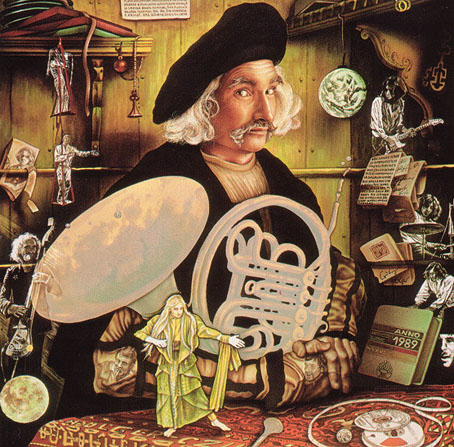Fish and Octopus (Colourful Realm of Living Beings) (circa 1765) by Ito Jakuchu.
• At Aeon: “Could extraterrestrial technology be lurking in our backyard—on the Moon, Mars or in the asteroid belt? We think it’s worth a look.” Ravi Kopparapu and Jacob Haqq Misra explain.
• At Smithsonian magazine: The first confirmed footage of the Colossal Squid. Only a baby one, however, so not very colossal.
• The eighth installment of Smoky Man’s exploration of The Bumper Book of Magic has been posted (in Italian) at (quasi).
Less than six months later, Lindsay signed an executive order that effectively turned the city into a movie set. The new Mayor’s Office of Film, Theatre, and Broadcasting was designed to cut through existing red tape and facilitate location filming. Script approval was centralized in a single agency. A production now needed but a single permit to shoot on the streets; a specific police unit would remain with the filmmakers as they moved from location to location. Thus, Lindsay created the necessary conditions for the tough cop films, bleak social comedies, and gritty urban fables that captured the feel of New York in the late sixties and early seventies—the cinema of Fun City.
J. Hoberman explores New York City’s popularity as a film location
• Mixes of the week: A mix for The Wire by John King; and DreamScenes – April 2025 at Ambientblog.
• At Colossal: Water droplets cling to fluorescent plant spines in Tom Leighton’s alluring photos.
• At the BFI: Alex Barrett on Carl Theodor Dreyer’s unmade film about Jesus.
• Anne Billson ranks 20 films starring Julie Christie.
• Voyage To The Bottom Of The Sea (1964) by Paul Sawtell | Das Boot (1981) by Klaus Doldinger | Ambient Block (Sequenchill/Mission Control #2/Lost In The Sea) (1993) by Sequential





